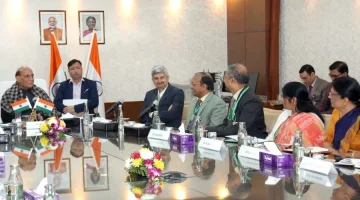The recent video message released by Gurpatwant Singh Pannun, leader of the banned separatist group Sikhs for Justice (SFJ), has escalated worries in India. Pannun, labeled a designated terrorist by Indian authorities, is seen openly advocating for the kidnapping of government ministers and the use of force to free radical Sikh preacher Amritpal Singh. This dangerous rhetoric marks a disturbing shift toward violent tactics by the SFJ, a group that aims to establish a separate nation of Khalistan in India's Punjab region.
Amritpal Singh: A Symbol for Extremists
Amritpal Singh, currently detained in a special cell in Assam's Dibrugarh jail, faces serious charges including attempted murder. However, he has become a rallying point for Khalistani sympathizers. Pannun's exploitation of Singh's case highlights the way extremist groups can manipulate causes and individuals to incite unrest and pursue their agendas.
Pannun's Incendiary Message: A Blueprint for Violence
Pannun's video is more than a call for Amritpal Singh's freedom – it's a chilling instruction manual for violence. Reports indicate he provides explicit details on attacking jails and even names a union minister and his son as potential kidnapping targets. This represents a serious escalation from the SFJ's usual tactics, which were largely focused on online propaganda and legal maneuvering.
Consequences for Rule of Law
Pannun's incendiary message poses a direct challenge to the Indian legal system and democratic principles. Promoting violence against elected officials and calling for the subversion of the judicial process strikes at the heart of a peaceful and ordered society. If allowed to spread, such extremist ideologies could severely destabilize the region and erode faith in the government's ability to maintain safety and justice.
The Challenge for Counterterrorism
Law enforcement and intelligence agencies in India must treat this video as a significant security threat. Proactive measures are crucial, including monitoring potential followers of Pannun and disrupting any plans for violence. However, counterterrorism efforts cannot exist in a vacuum. It's also essential to address the societal grievances that such extremist groups prey upon, working to create dialogue and a sense of inclusion.
Global Implications
Pannun's actions and the SFJ's potential turn toward violence hold implications beyond India's borders. With a significant Sikh diaspora in countries like Canada, the UK, and the US, the SFJ has attempted to garner international support. Indian authorities likely will need to coordinate with these nations on intelligence sharing and counterterrorism efforts to prevent the spread of this dangerous ideology and potential acts of violence inspired by it.
Conclusion
Gurpatwant Singh Pannun's video message signals a troubling development in the ongoing struggle against Khalistani extremism. It highlights the constant threat that groups with separatist agendas pose to both national and international security. India needs decisive action to confront this challenge, ensuring that the rule of law is upheld and the safety of its citizens is protected.




